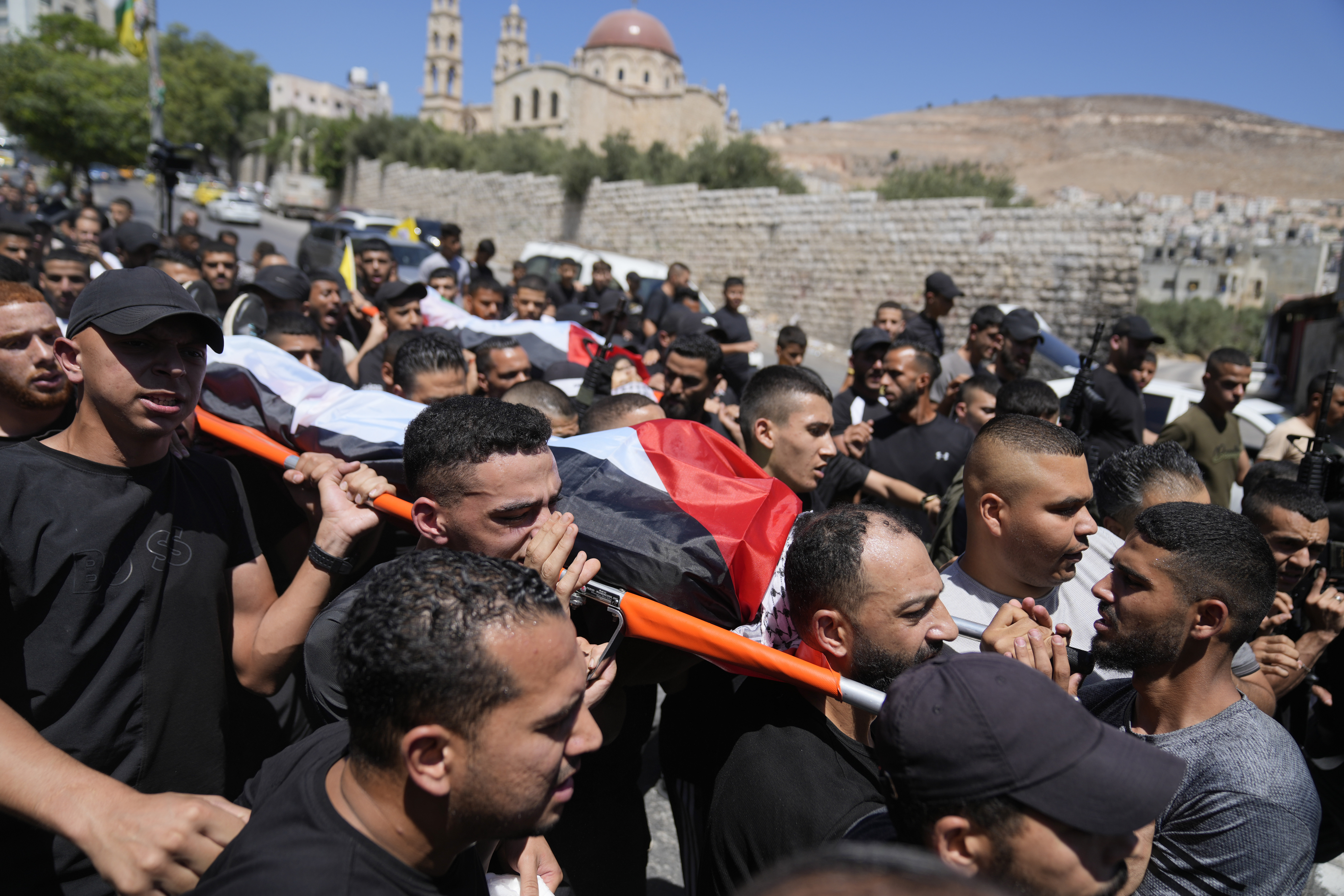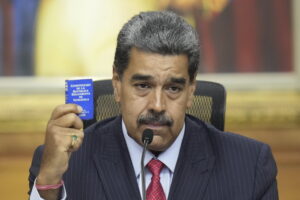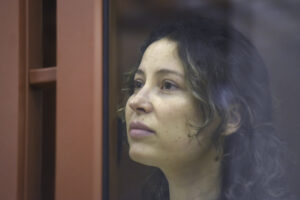Diplomacy Intensifies To Halt Israel-Hamas War And Prevent Wider Regional Conflict
International diplomacy to prevent the war in Gaza from spreading into a wider regional conflict is intensifying.

JERUSALEM (AP) — International diplomacy to prevent the war in Gaza from spreading into a wider regional conflict intensified Friday, with the British and French foreign ministers making a joint trip to Israel while internationally mediated cease-fire talks in Qatar were expected to enter their second day.
The new push for an end to the Israel-Hamas war came as the Palestinian death toll in Gaza climbed past 40,000, according to Gaza health authorities, and fears remained high that Iran and Hezbollah militants in Lebanon would attack Israel in retaliation for the killings of top militant leaders.
“This is a dangerous moment for the Middle East,” British Foreign Secretary David Lammy said. “The risk of the situation spiraling out of control is rising. Any Iranian attack would have devastating consequences for the region.”
Lammy and French Foreign Minister Stéphane Séjourné were expected hold a joint meeting with Israeli Foreign Minister Israel Katz and Strategic Affairs Minister Ron Dermer.
“It’s never too late for peace,” Séjourné said. “We must at all costs avoid a regional war, which would have terrible consequences.”
International mediators believe the best hope for calming tensions would be a deal between Israel and Hamas to halt the fighting and secure the release of Israeli hostages.
The United States, Qatar and Egypt began a new round of talks Thursday, meeting with an Israeli delegation in Qatar.
Hamas, which didn’t participate directly in Thursday’s talks, accuses Israel of adding new demands to a previous proposal that had U.S. and international support and to which Hamas had agreed in principle. Israel accuses Hamas of adding its own new demands.
White House National Security spokesperson John Kirby called the talks an important step. He said a lot of work remains given the complexity of the agreement and that negotiators were focusing on its implementation.
A U.S. official briefed on Thursday’s talks called the discussion “constructive.” The official was not authorized to comment publicly and spoke on condition of anonymity.
Qatar said the talks would continue Friday.
The war began when Hamas-led militants stormed across the heavily guarded border on Oct. 7, killing around 1,200 people, mostly civilians, and abducting 250 to Gaza. More than 100 were released during a weeklong cease-fire in November, and around 110 are believed to still be inside Gaza, though Israeli authorities believe around a third of them are dead.
Israel’s devastating retaliatory offensive has killed 40,005 Palestinians, Gaza’s Health Ministry said Thursday, without saying how many were militants. Israel’s military spokesperson, Rear Adm. Daniel Hagari, said Thursday that Israel had killed more than 17,000 Hamas militants in Gaza in the war, without providing evidence.
Diplomats hoped a cease-fire deal would persuade Iran and Lebanon’s Hezbollah to hold off on retaliating for the killing of a top Hezbollah commander in an Israeli airstrike in Beirut and of Hamas’ top political leader in an explosion in Tehran that was widely blamed on Israel.
Kirby said that Iran has made preparations and could attack soon with little to no warning — and that its rhetoric should be taken seriously.
The mediators have spent months trying to hammer out a three-phase plan in which Hamas would release the hostages in exchange for a lasting cease-fire, the withdrawal of Israeli forces from Gaza and the release of Palestinians imprisoned by Israel.
Both sides have agreed in principle to the plan President Joe Biden announced on May 31. But Hamas has proposed amendments and Israel has suggested clarifications, leading each side to accuse the other of trying to tank a deal.
Hamas has rejected Israel’s demands, which include a lasting military presence along the border with Egypt and a line bisecting Gaza where it would search Palestinians returning to their homes to root out militants.
In a reminder of how the violence has spread from Gaza, masked Israeli settlers in the occupied West Bank stormed the village of Jit, setting homes and cars on fire Thursday, Israeli and Palestinian media said. One Palestinian was shot dead and another critically injured by the settlers, Palestinian health officials said.
It was the latest in a series of settler attacks since the outbreak of the war. In the West Bank, 633 Palestinians have been killed by Israeli fire — most by Israeli raids into Palestinian cities and towns.
Israeli Prime Minister Benjamin Netanyahu condemned the attack, saying it was the responsibility of the army to secure the country, and that those responsible would be apprehended and prosecuted. Israel’s military said it has apprehended a civilian who took part in the violence and has opened an investigation.
___
Associated Press writers Julia Frankel in Jerusalem, Aamer Madhani in Washington, Brian Melley in London, and David Klepper in Chicago contributed to this report.
___
Follow AP’s war coverage at https://apnews.com/hub/israel-hamas-war





